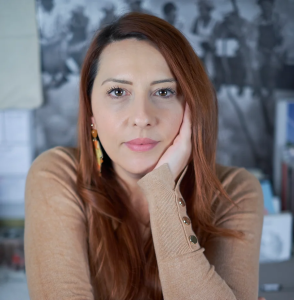Failure: an alternative way to succeed
The state of the art on the topic with the perspective of Francesca Corrado, founder of School of Bankruptcy.
 “Errare humanum est.”
“Errare humanum est.”
According to the well-known Latin proverb, error inherently belongs to the very nature of man.
An experience that many people share at some point in their lives is precisely failure, often in combination with guilt and/or shame. For many, it is therefore an exclusively negative eventuality, to be feared and shunned as much as possible within the span of one’s existence.
Indeed, it is a common conception that mistakes, and the personal and professional detours that follow, are the direct route to the collapse of what one has been hard at building.
Ingrained in the collective imagination is still the idea of failure as an inexorable terminus, which can only imply the ruinous end of a journey. Much more likely, however, it may concretely represent the possibility of a new beginning or turning point.
In fact, failure can be seen as anopportunity to change one’s path to direct it toward goals more in keeping with one’s nature. Or, more simply, the discovery of new ways to hit already defined goals. Be careful, though. The benefits of failure are visible only to those who have eyes or, even better, possess the correct mindset to detect them.
Consciously accepting error is the cornerstone of the process of change and growth, both professional and personal. Enlightening insights can emerge from it to make useful changes where needed, as Francesca Corrado, creator and founder of School of Failure, says:
“I used to be a perfectionist. Then, in 2015, a series of negative circumstances, both personal and professional, led me to completely rethink my life. The idea of reasoning about failure came from there.”
Born from the personal experience of its founder, School of Failure is a project whose mission is “tolearn to overcome the fear of failure in order to design one’s own success,” pursued through workshops and hands-on activities that allow people to learn from their mistakes, develop critical thinking and train cognitive flexibility.
And it is precisely as the creator of such a School that Francesca Corrado was featured in Phyd ‘s event-workshop ““…What if I’m wrong?” Practical guide to bankruptcy” in which he treated the topic through a practical-ludic approach.
The issue is now the focus of a lively debate with proponents of failure as an opportunity for learning and growth on one side and skeptics on the other, who are more hostile to the acceptance of unconventional and divergent views on the issue of constructive error.
Francesca Corrado herself, who has experienced failure firsthand with all its positive and negative consequences, stresses the need to approach the topic with balance:
“Today there is a lot of talk about failure, but I have the feeling that little is done to really understand the meaning of this word and its real implications. Too often it seems to me that we almost want to mythologize failure, as if to say that failing can be good. In reality one should reason and analyze mistakes to understand how not to repeat them or how to make better ones! That is, mistakes that are a source of new knowledge and a means to go further.”
Broadening the view on the topic, it can be seen that its real strength lies in its ability to represent an innovative philosophy that is also applicable to work contexts. Precisely in them, it could make a dent in traditional business dynamics, which are more reluctant to accept and encourage the individual’s ability to “err correctly.”
In this case, however, conditionality is in order. There is still a long way to go to replace alternative viewpoints to traditional dynamics. Trends as disruptive in scope as constructive failure, even before they are implemented, must be fully metabolized to become structurally part of corporate DNA.
In this regard, Francesca is very clear about the real conditions prevailing in work settings regarding the possibility of responsible error and, more broadly, failure:
“Next to the term bankruptcy, another word that has entered the business lexicon is ‘entrepreneurship.’ In reality, being an entrepreneur means taking risks and taking responsibility even for your own mistakes. I’m not sure that companies today are really willing to give such a large amount of freedom to their people. Often, we see situations where employees are pushed to be proactive but then are not really left free to experiment and, therefore, to make mistakes.”
To read more magazine articles from phyd.com, click here.










0 Comments